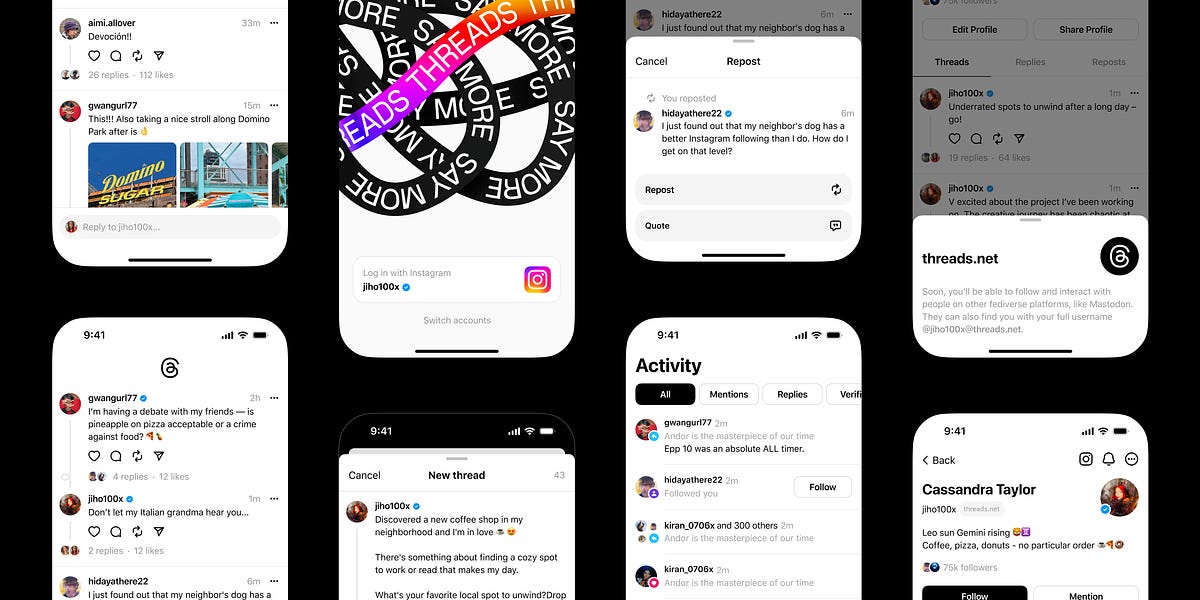
Meta unspools Threads

From a business perspective, this centralization was a natural extension of the early internet — people were getting more connected, so just connect them even more . Why have everyone make their own websites when everyone’s homepage could just be their Facebook page? Why try to track people down in IRC chat rooms when you could just talk to
... See moreNoah Smith • The Internet Wants to Be Fragmented
Why is Instagram pushing Reels so hard? The secular shift to video is scary on its own, but that’s actually easy compared to the other big trend Zuckerberg sees coming: algorithms showing you content from people you don’t follow. Facebook is massively behind TikTok and YouTube on this one.